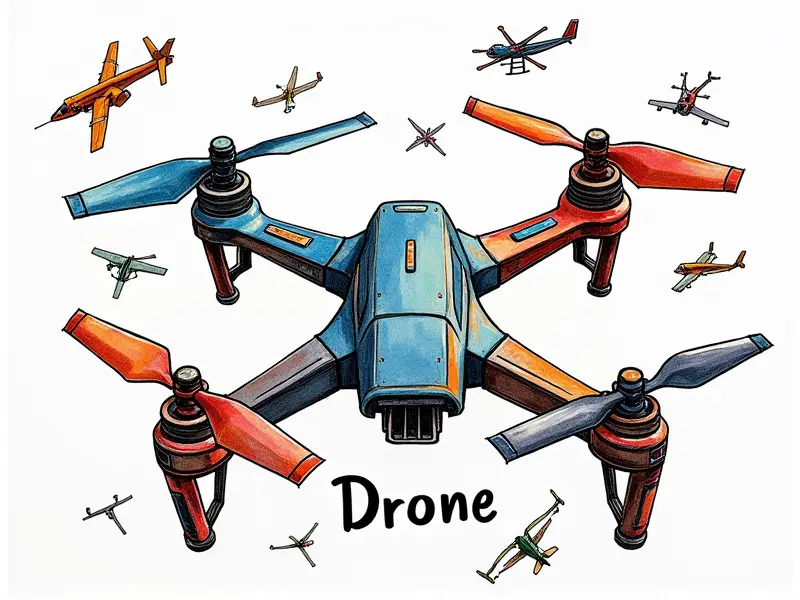Are RC helicopters safe to fly?

RC helicopters are a popular hobby among enthusiasts, offering excitement and challenge. However, safety is paramount when flying these miniature aircraft. This article delves into the various aspects of ensuring safe operation for both beginners and experienced pilots.
Are RC Helicopters Safe for Beginners?
For newcomers to the world of remote-controlled (RC) helicopters, safety concerns are often at the forefront of their minds. The good news is that with proper guidance and training, flying RC helicopters can be a safe and enjoyable hobby.
RC Helicopter Safety Tips & Tricks
- Proper Training: Enroll in beginner classes or workshops to learn the basics of flight control and safety protocols.
- Familiarize with Equipment: Understand all components of your RC helicopter, from the battery pack to the radio transmitter.
- Read Manuals: Thoroughly read through user manuals and follow manufacturer guidelines for setup and maintenance.
Ensuring Safety While Flying RC Helicopters
To ensure a safe flying experience, it's crucial to adhere to several key practices:
- Pilot Preparedness: Always check weather conditions before flight. Windy or rainy days can pose significant risks.
- Battery Checks: Ensure batteries are fully charged and in good condition to avoid unexpected power failures mid-flight.
- Visual Inspection: Conduct a thorough visual inspection of the helicopter for any loose parts or damage before each flight.
Common Risks of RC Helicopter Flying
Flying RC helicopters comes with inherent risks, including:
- Collision Hazards: The risk of crashing into obstacles like trees, buildings, or other aircraft.
- Battery Overheating: Improper battery handling can lead to overheating and potential fire hazards.
- Landing Gear Failure: Malfunctions in landing gears can cause the helicopter to tip over upon touchdown.
Beginner's Guide to RC Helicopter Safety
New pilots should focus on mastering basic maneuvers such as hovering, forward and backward flight, and turning before attempting more complex stunts. This gradual learning curve helps build confidence and proficiency in handling the aircraft safely.
Avoiding Accidents with RC Helicopters
To minimize accidents:
- Flight Practice Areas: Choose designated flying zones that are free from obstacles and other hazards.
- Routine Maintenance: Regularly check and maintain your helicopter to ensure all parts function correctly.
- Safety Gear: Always wear protective gear such as helmets and goggles during flight operations.
Legalities and Regulations for RC Helicopter Flight
Flying an RC helicopter is subject to federal, state, and local regulations. Key points include:
- Airspace Restrictions: Avoid flying in restricted airspace near airports or military installations.
- No-Fly Zones: Check for any designated no-fly areas that prohibit RC aircraft operations.
- Licensing Requirements: Some regions may require pilots to obtain specific licenses or certifications.
Safe Flying Zones for RC Helicopters
Selecting the right location is crucial. Ideal spots include open fields, parks, and designated flying sites that are away from populated areas and obstacles.
Protecting People and Property with RC Helis
To safeguard people and property:
- Avoid Crowded Areas: Refrain from flying over or near crowds to prevent accidental injury.
- Property Damage Prevention: Be mindful of the helicopter's range and avoid areas with valuable assets like cars or buildings.
Is It Safe to Fly RC Helicopters Indoors?
Flying indoors poses unique challenges due to limited space and potential hazards. Use indoor-specific models designed for confined spaces, and ensure there are no fragile objects nearby.
RC Helicopter Safety Gear You Need
- Helmets: Protect your head from any falling debris or accidental collisions.
- Goggles: Shield your eyes from dust and small parts that may dislodge during flight.
- Battery Fire Extinguishers: Keep a fire extinguisher nearby to handle potential battery fires safely.
Conclusion
Flying RC helicopters can be an exhilarating hobby, but it requires careful consideration of safety measures. By following the guidelines outlined in this article—from proper training and equipment checks to understanding legal restrictions—you can enjoy your RC helicopter flights while minimizing risks.

